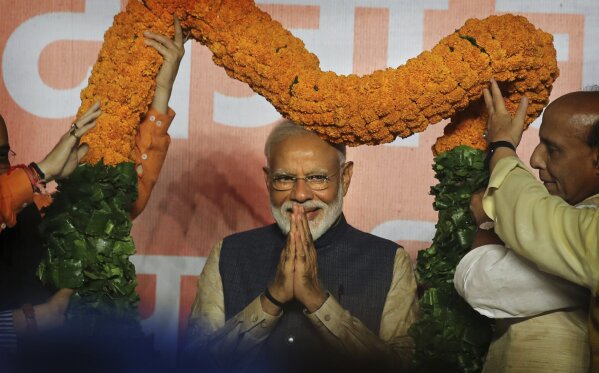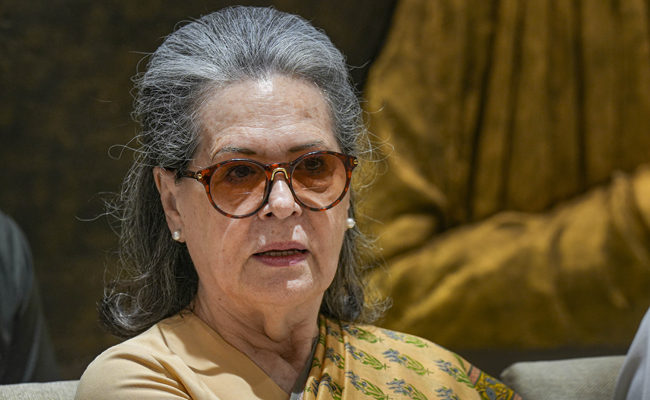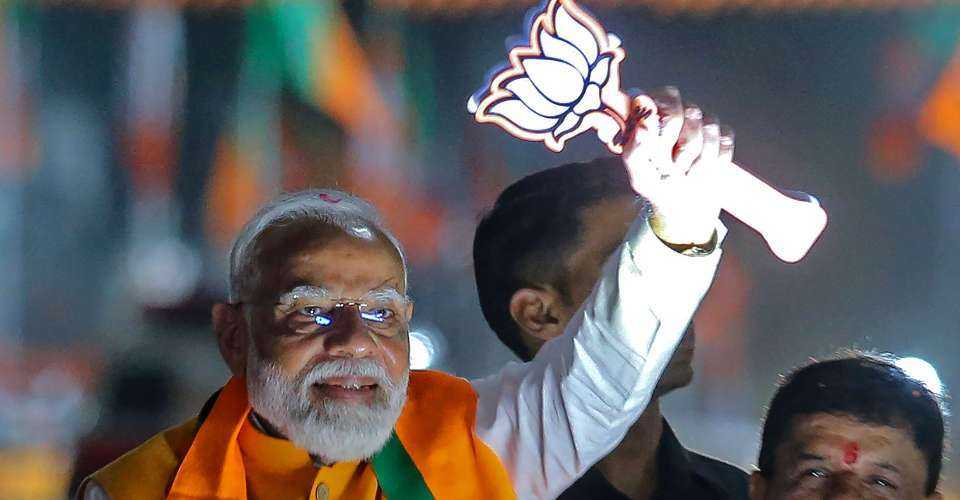Is Modi On The Cusp Of A ‘Never-Before’ Mandate? As Counting Votes Begins After India’s Mammoth 7-Phase Elections, What Are The Expectations From The New Government?

After a mammoth seven-phase election – the world’s largest democratic exercise – that began on April 19 and ended on Saturday, India is counting votes.
A party or coalition needs 272 seats to become the majority party in the 543-member Lok Sabha, the lower house of India’s parliament.
As per the Exit polls data, it shows Prime Minister Narendra Modi is well on track to return to power for a third consecutive term, while the Indian National Congress party-led opposition bloc hopes to upstage him.
The Election Commission states that a record-breaking 642 million voters cast their ballots in the staggered election, even as it dismissed opposition concerns over how the votes would be counted.
However, this year’s voter turnout was 66.3 percent, about one percentage point lower than 2019.
 BJP Unlikely To Lose This Election
BJP Unlikely To Lose This Election
As counting votes gets underway, the BJP and its partners are unlikely to lose this election. Even if their overall seats are reduced, they will still likely be in a position to form a government; hence, in all predictions, a likely win for the BJP-led NDA alliance.
Is Modi On The Cusp Of A ‘Never-before’ Mandate?
If exit polls are right, and we get the verdict today, it is said that Modi and his BJP will return to power with an even larger mandate than they received in 2019, and the prime minister will create history.
Jawaharlal Nehru, independent India’s first prime minister, also won three straight Lok Sabha elections for the Congress party — in 1952, 1957 and 1962. But even under him, Congress saw its win margin fall in 1962.
Modi’s BJP, by contrast, won 282 seats in 2014 and 303 in 2019, and it is predicted by many pollsters to top that this time.
 India’s Expectations
India’s Expectations
According to an editorial in a leading daily, the next government’s main task will be to set India on the path of getting rich before it ages, referring to the young, working-age population in the world’s most populous nation.
Increasing the unemployment rate is the toughest and most crucial challenge that India and the Modi government will have to address.
However, judging by investor sentiments, Investors have already cheered the prospects of another Modi term, expecting it to deliver further years of strong economic growth and pro-business reforms.
On the other hand, while a possible two-thirds majority in parliament could allow significant changes to the constitution, rivals and critics have reservations regarding the possibility.
Opposition Encourages Election Commission to Adhere to Established Norms
As vote counting commences, the INDIA alliance has requested the Election Commission (EC) to follow its traditional method of counting postal votes before announcing results from electronic voting machines (EVMs).
Postal votes, which are paper ballots, are primarily cast by military personnel stationed outside their home constituencies and officials on election duty away from home.
This year, the option to use postal votes was also extended to voters over 85 years old and people with disabilities, enabling them to vote from home.
The INDIA alliance also called on the EC to ensure the “safe movement” of EVMs and their verification before and after the counting process, a request the commission has reportedly agreed to.
Opposition parties have previously accused the EC of bias in favor of the BJP regarding campaign violations, allegations the EC denies. Some opposition leaders and watchdogs have also claimed, without evidence, that EVMs can be tampered with.
However, the poll panel has refuted these claims, and courts have upheld the integrity of EVMs.
 Sonia Gandhi Expresses Positiveness Despite Exit Polls
Sonia Gandhi Expresses Positiveness Despite Exit Polls
The Congress-led opposition INDIA alliance has rejected the exit polls, labelling them unscientific and inaccurate.
“We are very hopeful that our results are completely opposite to what the exit poll is saying,” said former Congress president Sonia Gandhi on Monday.
State Legislatures Also Contested
In addition to the Lok Sabha elections, voters in four Indian states—Arunachal Pradesh, Sikkim, Andhra Pradesh, and Odisha—also elected their state legislatures during this extensive election period.
Votes for the Arunachal Pradesh and Sikkim legislative assemblies were counted on Monday, June 3, a day before the national count.
In Arunachal Pradesh, a state that shares a border with China, the BJP won decisively, securing 46 out of 60 seats.
In Sikkim, the Sikkim Krantikari Morcha, a local party, won 31 out of 32 seats.
BJP Wins Uncontested Seat in Surat
The Election Commission announced the first result from the Lok Sabha elections: the BJP’s victory in Surat, Gujarat.
This result was declared swiftly as no votes were cast; all opposition candidates were either disqualified or withdrew, allegedly due to pressure, leading to an uncontested win for the BJP’s Mukeshkumar Dalal.
 The Last Bit, If the Modi government wins the elections, several expectations and needs will demand its attention.
The Last Bit, If the Modi government wins the elections, several expectations and needs will demand its attention.
The government will need to address economic challenges, including boosting job creation, ensuring sustainable growth, and managing inflation.
At the same time, strengthening infrastructure, particularly in rural areas, and enhancing healthcare and education systems will be critical for overall development.
On the political front, maintaining democratic norms and addressing concerns about electoral transparency and the integrity of institutions will be crucial.
The government will also be expected to foster a more inclusive environment, bridging communal and social divides and ensuring that policies benefit all sections of society.
Internationally, the Modi government will need to guide complex geopolitical dynamics, particularly with neighbouring countries like China and Pakistan.
Strengthening India’s global standing through strategic partnerships and diplomatic efforts will be key to securing its interests on the world stage.
A re-elected Modi government will face high expectations to deliver on economic development, social cohesion, and international diplomacy, ensuring that its policies and actions align with the aspirations of a diverse and dynamic nation such as ours.




